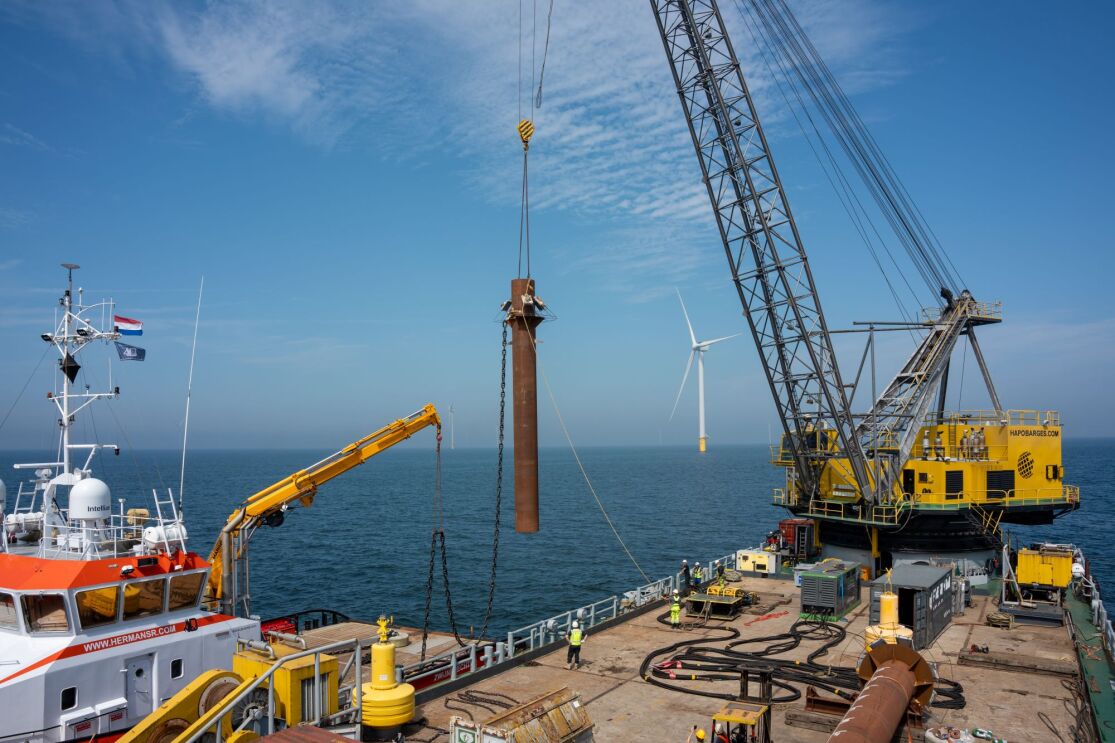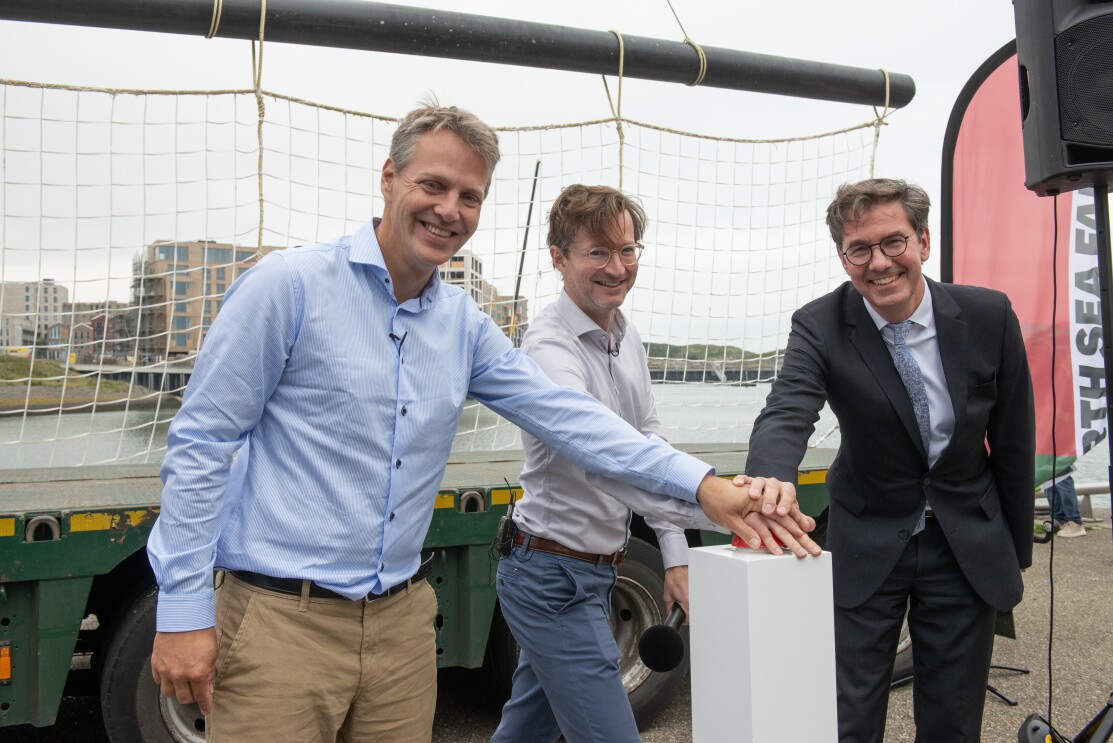This week, the world's first commercial-scale seaweed farm located between offshore wind turbines in the North Sea begins operations off the Dutch coast.
North Sea Farm 1 is led by North Sea Farmers (NSF), together with a consortium of European scientists and research partners. Amazon has granted €1.5 million to establish North Sea Farm 1 and carry out a year of scientific research into CO2 reduction through seaweed cultivation. This investment is part of Amazon’s Right Now Climate Fund (RNCF) which totals $100 million globally, and is intended to support climate and biodiversity projects that benefit both people and planet.
This content is hosted by a third party (www.youtube.com).
To view the content, you need to consent to cookies by selecting Accept all in the popup banner. Or you can go to the site footer, select Cookie Preferences, and then select On under Functional Cookies, Performance Cookies and Advertising Cookies.
Located within the 'Hollandse Kust Zuid' (HKZ) wind farm, approximately 18 kilometres off the coast of Scheveningen in the North Sea, the farm has the potential to produce at least 6,000kg of seaweed in the first year. This can be used to create a wide range of products, including clothing, food, and wellbeing items.

Eef Brouwers, Managing Director of NSF, said: "North Sea Farm 1 is placed in a previously unused space between wind turbines, allowing the project to expand seaweed cultivation in the otherwise heavily utilised North Sea. If seaweed farming were to expand to occupy the entire space occupied by wind farms, expected to be approximately 1 million hectares by 2040, this could capture and avoid millions of tons of CO2 annually."
If other seaweed producers follow its example, North Sea Farm 1 could serve as a blueprint for offshore seaweed cultivation worldwide, becoming a catalyst to scale Europe’s nascent seaweed sector.

“The farming of seaweed can contribute to achieving the EU’s objectives in terms of decarbonisation, zero pollution, circularity, the preservation and restoration of biodiversity, the protection of ecosystems and the development of environmental services," said Felix Leinemann, Head of Unit, Blue Economy Sectors, Aquaculture and Maritime Spatial Planning at the European Commission. "This is in line with what the European Commission wishes to promote through the EU Algae Initiative. What is particular about this project is that it models the impacts of large-scale seaweed farming within an offshore wind farm. Hopefully it will prove that multi-use of the limited space at sea is not just a concept, but a reality and can eventually be commercially viable. This is why we welcome this initiative from North Sea Farmers and Amazon, as it is fully in line with our objectives for a sustainable blue economy.”

“This project plays a vital role in Amazon’s broader sustainability story and everything we do to explore and support ways that can restore biodiversity and help fight climate change,” said Roeland Donker, Netherlands Country Manager, Amazon. “There is still so much to explore and learn from seaweed cultivation and sequestration in our oceans. The fact that we can play a role in this, supporting vital research by North Sea Farmers and their partners - which one day we hope to share with the world - is incredibly exciting.”
This content is hosted by a third party (www.youtube.com).
To view the content, you need to consent to cookies by selecting Accept all in the popup banner. Or you can go to the site footer, select Cookie Preferences, and then select On under Functional Cookies, Performance Cookies and Advertising Cookies.
In 2019, Amazon created the Right Now Climate Fund, a $100 million initiative supporting climate resilience and nature conservation. This fund finances community-focused projects that leverage nature-based solutions that could help mitigate the impacts of climate change, enhance biodiversity, and introduce green spaces in urban areas.
In 2021, Amazon allocated €20 million from the RNCF for nature-based projects across Europe. This funding will enable the planting of 450,000 trees in UK towns, restore 600,000 square metres of habitat in France and 500 hectares of blanket bog in Ireland, and train students to fight climate change in Spain. Other projects supported by the fund aim to create green corridors in Italy and Spain, regenerate urban areas in Germany, and protect historical woodlands, such as Belgium’s National Park Brabantse Wouden.












